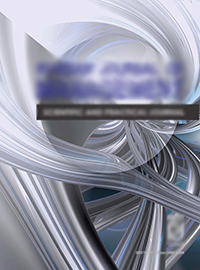The research included 26 women with acne vulgaris. The purpose of this work was the study of the impact of non-drug methods of correction of vulgaris acne caused by stress disorders. The mental state of patients was determined by traditional clinical method using standard psychometric tests. The assessment was made before treatment, on day 14, 21 and 35 day of therapy. Dermatological control of patients was conducted at the beginning and at the end of treatment. The non-drug methods were psychotherapy, phytotherapy and reflexotherapy (acupuncture). The positive effect was confirmed by the dynamic parameters used in study of standard scales and test with severity decrease in scores (р>0,05). The study proved high efficiency of complex application of combinations of non-drug methods in the treatment of disorders related to stress and impaired adaptation with concomitant acne. The use of combined treatment gave the opportunity to focus on one method, including in the combination, depending on the individual characteristics of patient. The good tolerability, absence out-side effects and availability allow to recommend this medical complex both hospital and outpatient settings.
acne vulgaris, acupuncture, phytotherapy, psychotherapy
1. Adaskevich V.P. Diagnosticheskie indeksy v dermatologii. M., Meditsinskaya kniga, 2004.
2. Adaskevich V.P. Kozhnyy zud. Dermatologicheskiy i mezhdistsiplinarnyy fenomen. 2014.
3. Gavaa Luvsan. Traditsionnye i sovremennye aspekty vostochnoy refleksoterapii. M.: Nauka, 1986. 575 s.
4. Drobysheva N.A. Refleksoterapiya pri razlichnykh zabolevaniyakh: Prakticheskoe rukovodstvo po refleksoterapii. M., 1997. 118 s.
5. Egorov B.E. Kompleksnaya emotsional´no-stressovaya psikhoterapiya depressivnogo nevroza i nevroticheskoy depressii: Dis. … kand. med. nauk, 1988. 145 s.
6. Pskhodermatologiya: istoriya, problemy, perspektivy / Ivanov O.L., L´vov A.N., Ostrishko V.V. [i dr.]// Ros. zhurnal kozhn. i venerich. bol. 1999. №1. C. 28-38.
7. Karvasarskiy B.D., Tupitsin Yu.Ya. Glossariy osnovnye formy i sindromy dlya unifitsirovannoy klinicheskoy otsenki sostoyaniy bol´nykh nevrozami: Metod. rekomendatsii. M., 1974. 42 s.
8. Karvasarskiy B.D. Nevrozy. M.: Meditsina, 1980. 448 s.
9. Lakosina N.D. Klinicheskie varianty nevroticheskogo razvitiya. M., 1970.
10. Mikhaylova A.A. Refleksoterapiya nevrozov: Ucheb.-metod. posobie. M., 1989. 101 s.
11. Nosov A. Lekarstvennye rasteniya. M.: EKSMO-Press, 2001. 349 s.
12. Ovsyannikov S.A. Istoriya i epistemologiya pogranichnoy psikhiatrii. M.: Al´pari, 1995. 205 s.
13. Orlova E.A., Molotilov B.A. Uchastie neyrogennogo vospaleniya v patogeneze khronicheskoy psikhogennoy krapivnitsy. Prakticheskaya meditsina. 2012. №6. S. 51-55.
14. Sviridonov G. Lesnoy ogorod. M.: Molodaya gvardiya, 1984. 223 s.
15. Sokolov S.Ya., Zamotaev I.P. Spravochnik po lekarstvennym rasteniyam (fitoterapiya). 2-e izd., stereotip. M.: Nedra, 1987. 512 s.
16. Stoyanovskiy D.N. Spravochnik po igloukalyvaniyu i prizhiganiyu. Kishinev: Kartya Moldovenyaske, 1987. 256 s.
17. Stoyanovskiy D.N. Chastnaya refleksoterapiya: Spravochnik / Pod red. S.M. Zol´nikova. Kishinev: Kartya Moldovenyaske, 1990. 332 s.
18. Tabeeva D.M. Prakticheskaya akupunktura. Smolensk: Gomeopaticheskaya meditsina, 1997. 490 s.
19. Tiganov A.S. Rukovodstvo po psikhiatrii. M.: Meditsina, 1999. 784 s.
20. Tykochinskaya E.D. Osnovy igloterapii. M.: Meditsina, 1979. 343 s.
21. Khagamanova I.V., Pavlova O.V. Rol´ stressovykh faktorov v razvitii khronicheskoy krapivnitsy. Vestnik poslediplomnogo meditsinskogo obrazovaniya. 2001. №2. S. 52-54.
22. Chzhu-Lyan´. Rukovodstvo po sovremennoy Chzhen´-tszyu terapii. M., 1959. 270 s.





